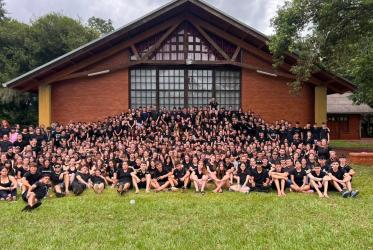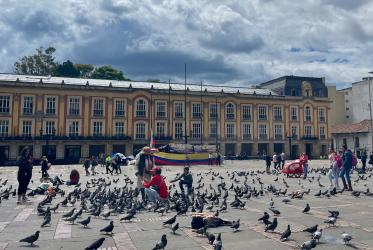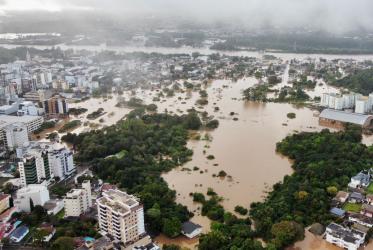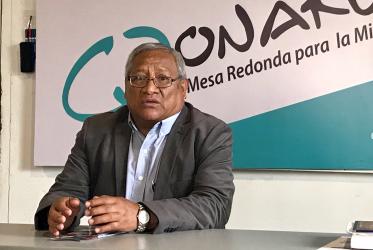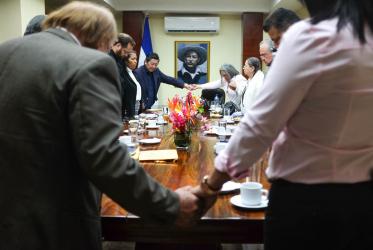Displaying 1 - 20 of 38
WCC backs extension of ceasefire in Colombia
18 January 2024
In wake of floods in Brazil, WCC expresses concern and solidarity
09 September 2023
WCC stands in solidarity with victims of major flood in Brazil
17 February 2022
Brazilian churches call for transformative racial justice
23 November 2020
WCC expresses solidarity with Peruvian people amid political crisis
20 November 2020
Larissa Aguiar Garcia: "We're opening a safe space”
26 September 2019
WCC Eco-School encourages youth to become eco-ambassadors
08 November 2018
